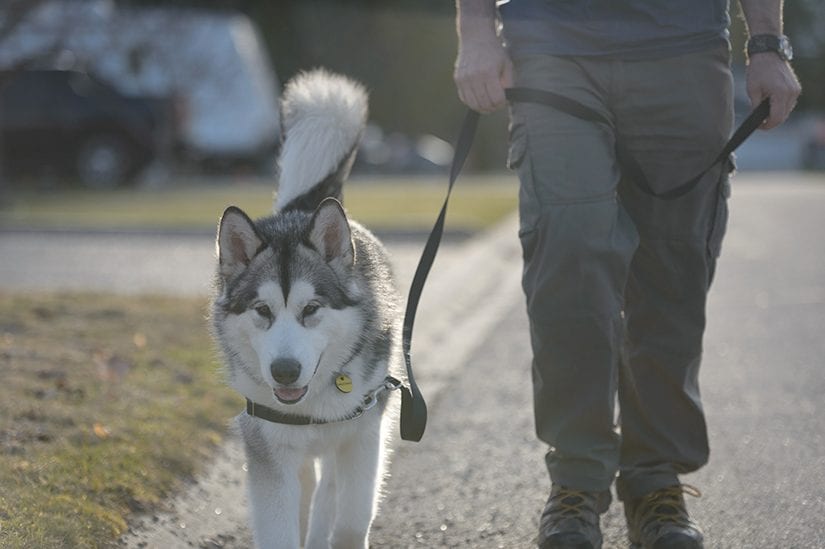A microchip is the most reliable form of permanent identification you can provide your pet. With 1 in 3 pets going missing in their lifetime, a microchip can be the difference in getting a lost pet back home to their family. But how much do we really know about them?
In honour of National Pet ID Week, the BC Pet Registry is helping us bust the top 3 microchip myths!

Myth #1: Microchips are GPS trackers for pets.
A very common misconception about microchips is that they are GPS devices for your pet. While they don’t track Rover’s exact location, microchips have a very effective way of tracing your pet back to you.
A microchip is an electronic chip with its own individual number that can be read with a microchip scanner. Using radio-frequency identification (RFID) technology, the chip transmits the identification number to the scanner, which displays the number on the screen. This microchip number, if registered, is what links to your contact information and can reunite you with a lost pet.
Myth #2: Once my pet has received a microchip, they are protected.
A step that many pet owners are unaware of is microchip registration. Registering your pet’s microchip after they receive a microchip at the shelter or veterinarian is crucial.

This is where the BC Pet Registry comes in. Registering your pet’s microchip with the BC Pet Registry ensures your pet’s microchip is connected to your contact information, such as phone number and email. In the case they are ever lost, veterinarians or shelters will be able to identify your pet and contact you ASAP.
After registering your pet’s microchip with the BC Pet Registry, their chip is internationally traceable and you can access your online account 24/7 to make updates to your contact information.
Myth #3: Pets with collars and tags don’t need microchips.
Pets can slip a collar, but they cannot slip a microchip!
Pets are often lost without their collars and tags, which makes permanent ID – like a microchip – so important. All pets should be given two types of ID to give them the best chances of getting home:
- Visible ID, such as a collar and tags with your phone number.
- Permanent ID, such as a registered microchip or tattoo.

“All pets, even indoor pets, should be provided with ID, as all it can take is an open window or door for a pet to lose their way”, says Dragana Hajdukovic, senior manager of business development at the BC SPCA. “Pets, especially those who are not accustomed to being outdoors, may be frightened and bolt if they do escape. Microchipping is a way to not only protect your furry family members, but provide you with peace of mind.”
To learn more about microchipping or register your pet’s microchip, please visit the BC Pet Registry’s website.
Get updates from the BC SPCA
Want to receive more news stories like this, right in your inbox? Use the form below to subscribe for updates.
